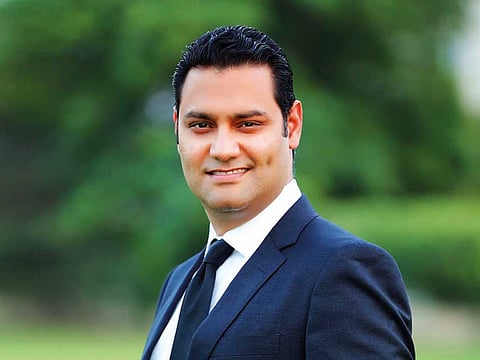Travel start-up HolidayME looks to expand
Dubai firm seeks to grow as Series B funding brings its investments to $23m

DUBAI
Travel start-up HolidayME is looking to expand its geographical coverage and strengthen its tech following a round of Series B funding that took its total capital raised to $23 million.
Co-founder and CEO Geet Bhalla said the firm, originally conceived as an online travel agency, planned to open a physical office in Saudi Arabia.
“Across the GCC, Saudi is the biggest economy, so that’s our number one. We’ve just taken that space, we’ve hired a few more people, we’re actively marketing and branding. It’s Saudi, and then the natural progression is GCC, spreading into Mena [the Middle East and North Africa]. This is the regional element of play that we foresee in the next couple of years.”
Opening a physical office in Saudi Arabia is simply HolidayME — a firm conceived as a digital travel agency — responding to market expectations, Bhalla said.
“It’s very market specific. “There’s a whole lot of people want to come to the office — and, trust me, our office is not meant to be a retail office it’s a corporate office — because they just want to see you. And we see this more often in Saudi.
“There is an element of trust in this part of the world when it comes to online companies in general. When you’re buying a holiday you’re spending a significant amount of money. And when you’re paying thatr kind of money to someone you’ve not heard about there are people who get a little anxious and want to see who you are.
“We saw that a little more in Saudi than we saw it here [in the UAE], so we said, let’s make a public-facing office for people to see us. That’s really the objective. And we hope it’s in line with what the market wants.
“People are used to buying holidays in travel agencies. We’re bringing technology to it, but we don’t want to use the human touch.”
Alongside the expansion of its geographical market, HolidayME plans to expand the areas in which it offers holiday packages — it currently operates in 50 countries — as well as investments in technology to ensure its interface is as user-friendly as possible on multiple platforms.
While Bhalla is reluctant to reveal the firm’s revenues — it’s in “millions of dollars on a monthly basis” is as specific as he’s willing to be. He’s more open on growth — 400 per cent during the course of 2017, with confidence in continued growth — and website visits (around a million a month).
It’s a far cry from the days when Bhalla, a former regional head for a Swiss fintech company with a background in sales, was casting around for ideas for a tech-based business of his own.
“I was very gung-ho about e-commerce, and I used to travel a lot — to the US, to India and stuff. This was way back in 2012, 2013. I thought e-commerce has to happen in the Middle East. I mean, there’s no way this isn’t going to come here. Then I started thinking of what in e-commerce can we possibly do, what are the resources I have, which people can help me — because I’m not a techie, and e-commerce is all about technology.”
That’s when Bhalla met his fellow co-founder Digvijay Pratap, who did have a technology background. They decided the travel sector was promising.
“Travel is known to be one of those early adoption businesses from a customer standpoint in e-commerce. People will be travel much before they start buying furniture, for example. Typically an Amazon-type e-play and a travel e-play happen much earlier.”
They then set about finding a niche within the regional travel sector. “There was some trial and error. There was some element of pivot. When we started off we didn’t exactly start the way that we are today.
“When you launch a product and start getting feedback, you start to drift and make sure you’re aligned with what customers are looking for.”
HolidayME evolved into a firm offering a full, customised holiday package.
Start-up funding and growth
Start-ups seeking funding beyond founders’ savings and family loans generally go through several rounds of financing designed to help them move from fledgling status to established corporation ready for an IPO.
Seed Capital
The money used to start a business and conducts its early-stage development. Seed capital usually comes from founders’ personal savings and assets, and those of their friends and family. Outside institutions rarely become involved with seed capital, which is considered a risky investment, though angel investors and some venture capital firms specialise in early-stage financing for start-ups that demonstrate the ability and desire to grow.
Series A Financing
Series A funding is usually drawn from traditional venture capitalists, and it’s usually used to optimise product and consumer base. It’s still considered part of the development phase.
Series B Financing
Series B funding is usually used for expanding a business beyond its development phase, expanding the firm’s personnel and its market reach. Series B is also usually the province of venture capitalists.
Series C Financing
At this stage it’s usually clear whether the firm will be truly successful and ready for an IPO. Series C is often concerned with perfecting the business, and sometimes expanding into new areas through acquisitions or mergers. At
this stage, venture capitalists are joined by hedge funds, investment banks, private equity and other
more risk-averse investors.
Sign up for the Daily Briefing
Get the latest news and updates straight to your inbox


